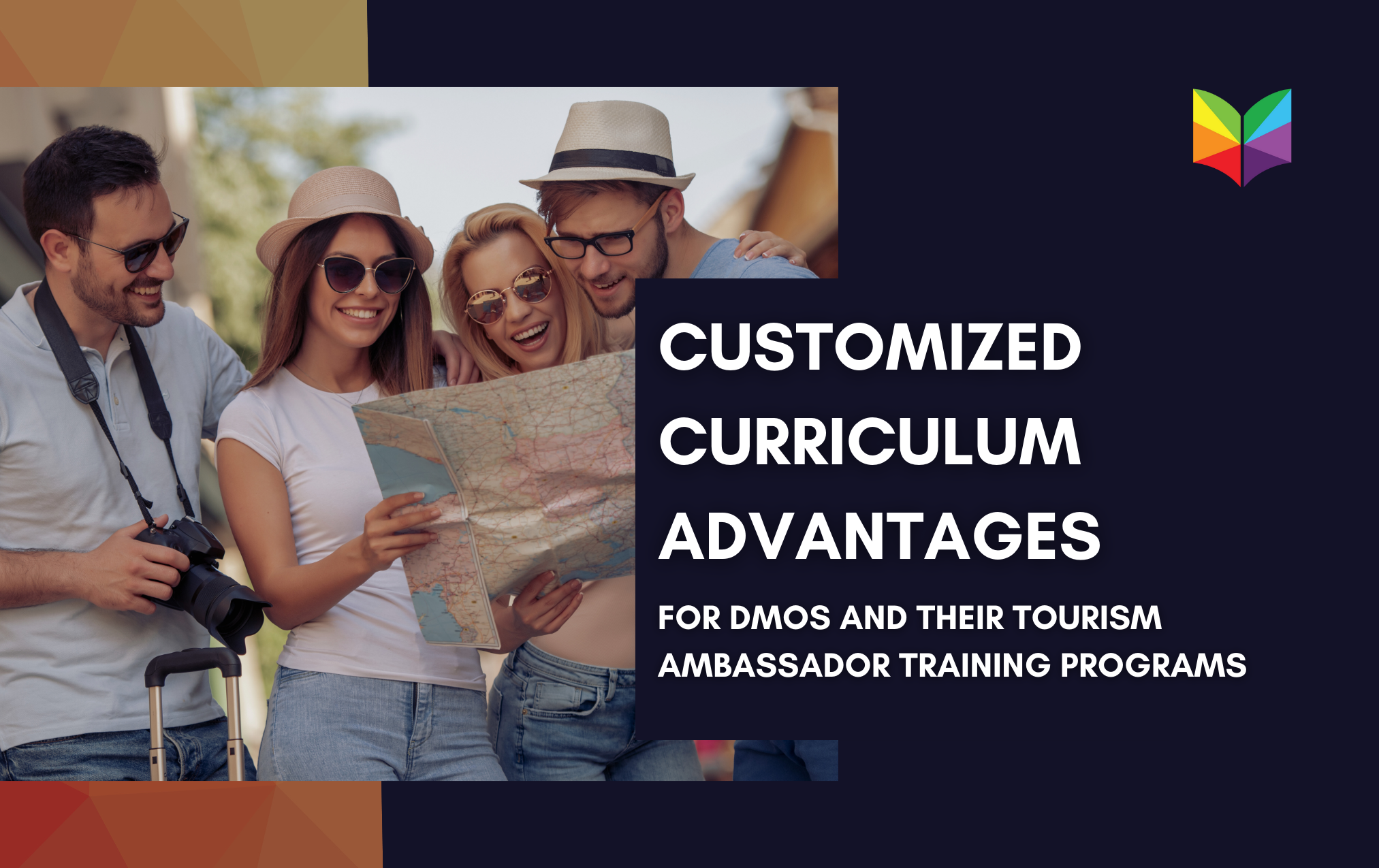
Advantages of Customized Curriculum for DMOs and Their Tourism Ambassador Training Programs
Destination Management Organizations (DMOs) play a pivotal role in shaping the visitor experience in today's ever-evolving tourism landscape. One of the critical components of their mission is to train tourism ambassadors who represent and promote their destinations. To achieve this effectively, DMOs increasingly use customized curricula for their training programs. This approach offers numerous benefits, aligning with the core values of the Tourism Academy and the ethos of its CEO, Stephen Ekstrom. This article will explore the advantages of tailored training programs for DMOs and their tourism ambassadors.
-
Relevance to the Destination
A customized curriculum allows DMOs to craft training programs tailored to their destination's unique attributes, culture, and goals. This ensures that tourism ambassadors possess in-depth knowledge about their region, enabling them to offer authentic and engaging experiences to visitors. As Stephen Ekstrom aptly puts it, "Do the best you can until you know better." Customized training empowers ambassadors to "know better" about their destination, ultimately leading to a higher quality of service.
-
Improved Engagement and Retention
Traditional, one-size-fits-all training programs can often lead to disengagement among participants. On the contrary, a customized curriculum considers ambassadors' individual preferences and learning styles, making the training more engaging and relevant to them. When individuals feel their unique needs are being met, they are more likely to remain committed and motivated throughout the training process.
-
Fostering a Sense of Ownership
Customized training programs empower tourism ambassadors to take ownership of their roles. When individuals have a say in shaping their curriculum, they become more personally invested in the success of their DMO and destination. This sense of ownership can lead to ambassadors who are more proactive, innovative, and passionate about promoting their region.
-
Adaptability to Industry Changes
The tourism industry constantly evolves, with new trends, technologies, and challenges emerging regularly. Customized training programs can be easily adapted to incorporate these changes. This ensures that ambassadors stay up-to-date with industry developments, enabling them to provide visitors with the latest and most relevant information and experiences.
-
Enhanced Collaboration and Networking
Stephen Ekstrom's emphasis on "reconnecting with friends" highlights the importance of building solid relationships. Customized training programs often include networking opportunities and collaborative projects, fostering a sense of community among ambassadors. This network can be a valuable resource for sharing best practices, gathering insights, and seeking support when faced with challenges.
-
Measurable Results
A customized curriculum allows DMOs to establish clear learning objectives and performance metrics. This makes it easier to measure the training program's effectiveness and track tourism ambassadors' progress. By quantifying their impact, DMOs can continuously make data-driven decisions to improve their training initiatives.
Conclusion
Customized curriculum for DMOs' tourism ambassador training programs aligns with the core values of the Tourism Academy and Stephen Ekstrom's passion for learning and sharing knowledge. It enables DMOs to create more engaging, relevant, and practical training experiences that benefit the ambassadors and their destinations. As Robert Heinlein wisely said, "When one teaches, two learn." Through customized training, DMOs are teaching their ambassadors and contributing to the growth and sustainability of their destinations and the tourism industry as a whole.


Leave a comment